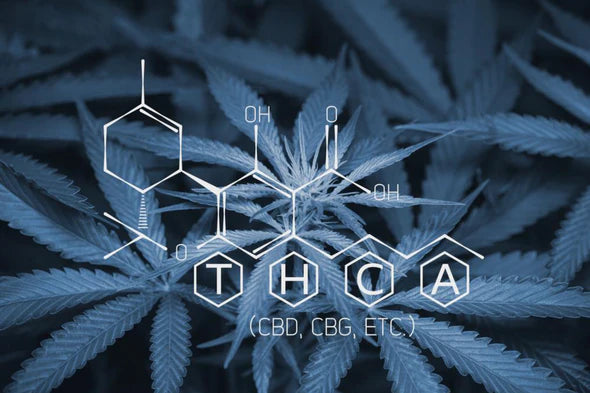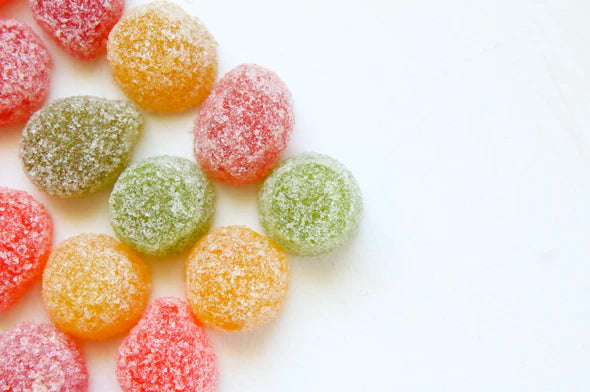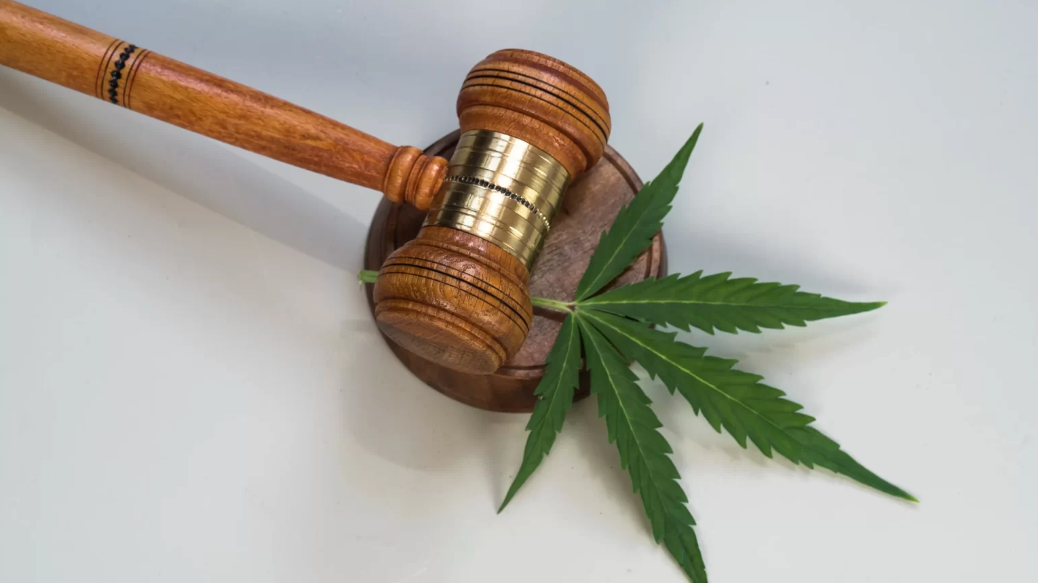Is THCa Stronger than Delta 9?

Many assume that the “a” at the end of the THCa is a typo and typically ignore it. Therefore, it is common for users of Delta 9 THC products to assume that THCa is the same thing as Delta 9 THC. We are here to gladly tell you that they are not the same chemical substances. And while THCa and Delta 9 THC are similar in molecular structure, the little difference in their chemical structure provides a vastly different experience for consumers of Delta 9 THC and THCa products.
To ensure that the next time you go hunting for one of your favorite THC-infused edibles, delta 8 disposables, drinks, you know the difference between those containing THCa and Delta 9 THC, we discuss the differences between THCa and Delta 9 THC, and answer the question, “Is THCa stronger than Delta 9?”
What is Delta 9 THC?
Delta 9 THC is one of the many cannabinoids found in cannabis and hemp plants, and upon consumption, it provides a relaxing and consistent buzz for its user. Delta 9 THC is regarded as the main psychoactive ingredient in cannabis and hemp that gets people high and euphoric. In recent years, CBD (cannabidiol) has increased in popularity due to its many benefits, such that when people mention hemp, they immediately think of CBD. However, legal Delta 9 THC, according to the 2018 Farm Bill, is any form of Delta 9 THC obtained from Hemp with a concentration no greater than 0.3% on a dry weight basis.
Several Delta 9 and Delta 8 (an isomer of Delta 9) THC products can be found in many online stores across the United States, and most of them are in compliance with the federal and state regulation of 0.3% THC concentration on the basis of dry weight as the maximum that can be found in any product.
What Is THCa?
In terms of molecular structure, THCa is very similar to THC. However, it contains extra molecular carboxyl rings that make it impossible for it to bind to the BC1 and BC2 receptors in the brain. The molecular structure of THCa makes it impossible to get high by consuming it raw. But there is a catch, THCa can be converted to Delta 9 THC in the presence of heat or sunlight through a process called decarboxylation. Typically, The decarboxylation of cannabis helps to remove the carboxyl group from the cannabinoid molecule. Carboxylation helps to convert THCa into THC.
THCa is the acidic form of THC that does not provide any psychoactive effect of euphoria and feel-good sensations when consumed in its raw state. THCa is called a precursor molecule because its final state after exposure to a heat source or the sun is Delta 9 THC. Therefore, to get the psychoactive, euphoric, and intoxicating effect that Delta 9 THC delivers, THCa simply needs to be exposed to a heat source and consumed immediately.
It has been established through experimentation that THCa converts to Delta 9 THC, the most common and abundant form of THC, at a maximum (theoretical) conversion rate of 87.7%. Essentially, for every gram of THCa, 0.877 grams of Delta 9 THC is obtained.
The best way to obtain THC from THCa is by exposing it to heat through smoking, vaping, dabbing, or cooking to help extract Delta 9 THC!
Is THCa Stronger than Delta 9 THC?
THCa and Delta 9 THC have similar potency, with THCa becoming psychoactive through decarboxylation via vaporization or smoking. Although their differences are minimal, it is unclear if THCa has a stronger effect than Delta 9 THC due to limited research.
What Are the Differences Between THCa and Delta 9 THC?
In essence, the primary difference between THCa and Delta 9 THC is that the former does not produce any euphoric effect when consumed in its raw form until it is converted to THC in the presence of heat through vaping, smoking, or cooking. Delta 9 THC, on the other hand, is an active substance that readily provides psychoactive properties when consumed.
Delta 9 THC Products REALIZE
REALIZE is a company founded to create innovative cannabis and hemp consumer products. REALIZE’s store provides customers like you with various Delta 9 products like the Realize Live Resin Gummies, Blueberry in Grandaddy Purple, disposable vapes, and so much more!
REALIZE invests heavily in researching and developing the most advanced cannabis formulas and THC delivery systems for its products to ensure that customers always have the best and most reliable experience.
Realize THCa products
Realize THCa vapes contain THCa Diamonds which are the most pure form THCa. THCa, in its raw form, is non-intoxicating, but once it is decarboxylated, it transforms into the psychoactive Delta 9 THC, making it a potent product. Vaping THCa allows for a quick and efficient way to consume cannabis, delivering a clean and pure high. With its high potency, THCa vapes are an ideal choice for those looking for a strong and fast-acting cannabis experience. If you're in search of a powerful and high-quality cannabis product, THCa vapes are definitely worth considering.
Summary
While THCa and Delta 9 THC are similar compounds found in the cannabis plant, THCa is regarded as a non-active compound since it does not provide its user with any psychoactive effect until it is exposed to heat. Delta 9 THC, on the other hand, is the primary active ingredient found in hemp-derived THC products, providing the euphoric effect the consumer feels.
THCa is converted to Delta 9 THC when it is heated; therefore, THCa is not more potent than THC. Instead, THCa converts to Delta 9 THC at a theoretical rate of 87.7%. You get slightly less Delta 9 THC for every gram of THCa converted.
If you want our high-quality THC products in bulk, we offer high-quality Delta 8 Wholesale and Delta 9 Wholesale products in the United States and beyond at competitive prices.
Note:
While the 2018 Farm Bill legalized these products on a federal level, state laws may impose restrictions. Please note that these laws are subject to change and we may not have the most up-to-date information listed.
Delta 9 THC
The states where Delta 9 THC products, such as, disposables, edibles and drinks, are prohibited include:
Arizona, California, Colorado, Connecticut, Hawaii, Idaho, Iowa, Louisiana, Michigan, Minnesota, North Dakota , Oregon , Utah , Vermont and Washington






